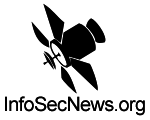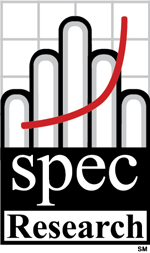- Overview
- Conference Organizers
- Registration Information
- Registration Discounts
- At a Glance
- Calendar
- Activities
- Technical Sessions
- Workshops
- Posters and Demos
- Birds-of-a-Feather Sessions
- Sponsorship
- Hotel and Travel Information
- Services
- Students
- Questions
- Help Promote!
- For Participants
- Call for Papers
- Past Conferences
sponsors
usenix conference policies
ICAC 2013 Call for Papers
Sponsored by USENIX, the Advanced Computing Systems Association
Important Dates
- Paper registrations (title and abstract) due: February 25, 2013, 11:59 p.m. PST
- Paper submissions due: March 7, 2013, 11:59 p.m. PST
- Poster/demo and Ph.D. forum proposals due: March 18, 2013
- Notification to authors: April 15, 2013
- Final paper files due: May 22, 2013
Overview
ICAC is the leading conference on autonomic computing techniques, foundations, and applications. Large-scale systems of all types, such as data centers, compute clouds, sensor networks, embedded or pervasive environments, and the Internet of Things are becoming increasingly complex and burdensome for people to manage. Autonomic computing systems reduce this burden by managing their own behavior in accordance with high-level goals. In autonomic systems, resources and applications are managed to maximize performance and minimize cost, while maintaining predictable and reliable behavior in the face of varying workloads, failures, and malicious threats. Achieving self-management requires and motivates research that spans a wide variety of scientific and engineering disciplines, including distributed systems, artificial intelligence, machine learning, modeling, control theory, optimization, planning, decision theory, user interface design, data management, software engineering, emergent behavior, and bio-inspired computing. ICAC brings together researchers and practitioners from disparate disciplines, application domains, and perspectives, enabling them to discover and share underlying commonalities in their approaches to making resources, applications, and systems more autonomic.
Topics
Papers are solicited from all areas of autonomic computing, including (but not limited to):
- Self-managing components, such as compute, storage, and networking devices; embedded and real-time systems; and mobile devices such as smart phones
- AI and mathematical techniques, such as machine learning, control theory, operations research, probability and stochastic processes, queuing theory, rule-based systems, and bio-inspired techniques, and their use in autonomic computing
- End-to-end design and implementations for management of resources, workloads, availability, performance, reliability, power/cooling, security, and others
- Monitoring systems that can scale to large environments
- Hypervisors, operating systems, middleware, or application support for autonomic computing
- Novel human interfaces for monitoring and controlling autonomic systems
- Goal specification and policies, including specification and modeling of service-level agreements, behavior enforcement, IT governance, and business-driven IT management
- Frameworks, principles, architectures, and toolkits, from software engineering practices and experimental methodologies to agent-based techniques
- Automated management techniques for emerging applications, systems, and platforms, including social networks, Big Data systems, multi-core processors, and Internet of Things
- Fundamental science and theory of self-managing systems for understanding, controlling, or exploiting emergent system behaviors to enforce autonomic properties
- Applications of autonomic computing and experiences with prototyped or deployed systems solving real-world problems in science, engineering, business, or society
Papers will be judged on originality, significance, interest, correctness, clarity, and relevance to the broader community. Papers are strongly encouraged to report on experiences, measurements, user studies, and provide an appropriate quantitative evaluation if at all possible.
Paper Submissions
Full papers (a maximum of 10 pages) and short papers (4 pages) are invited on a wide variety of topics relating to autonomic computing. Both full and short papers should be typeset in two-column format in 10 point type on 12 point (single-spaced) leading, with the text block being no more than 6.5" wide by 9" deep. Both kinds of papers should be submitted via the Web submission form; note that this form should only be used for submissions to the general track of ICAC '13, not the special tracks outlined below, which will have their own Web submission forms linked from their respective Web pages. Complete formatting and submission instructions can be found here. Authors are also encouraged to submit a poster or demo that summarizes or augments their paper (see below).
Simultaneous submission of the same work to multiple venues, submission of previously published work, or plagiarism constitutes dishonesty or fraud. USENIX, like other scientific and technical conferences and journals, prohibits these practices and may take action against authors who have committed them. See the USENIX Conference Submissions Policy for details. Papers accompanied by nondisclosure agreement forms will not be considered. If you are uncertain whether your submission meets USENIX's guidelines, please contact the program co-chairs, icac13chairs@usenix.org, or the USENIX office, submissionspolicy@usenix.org.
At least one author of an accepted paper is expected to present the paper in person at the conference. The accepted papers will be available online to registered attendees before the conference and will also appear in proceedings distributed via USB drives at the conference. If your accepted paper should not be published prior to the event, please notify production@usenix.org. The papers will be available online to everyone beginning on June 26, 2013. Accepted submissions will be treated as confidential prior to publication on the USENIX ICAC '13 Web site; rejected submissions will be permanently treated as confidential.
Special Tracks
To facilitate community collaboration and exchange of ideas in emergent technological areas, ICAC '13 will host two special tracks, each of which will be reviewed by its own subcommittee. Each track has its own schedule for submissions; please review the respective schedules carefully. More information regarding the special track on Self-Aware Internet of Things is available here. More information regarding the special track on Management of Big Data Systems is available here.
Posters and Demonstrations
ICAC '13 will also feature a poster and demonstration session consisting of research prototypes and technology artifacts that demonstrate autonomic software or autonomic computing principles. For formatting and submission instructions, plus the Web submission form specific to this session, see the Call for Posters and Demos.
Ph.D. Forum
Current Ph.D. students who are working on topics relevant to autonomic computing are invited to submit a short summary (up to 2 pages) of their work. Top selected submissions will be presented at a Ph.D. forum during the ICAC '13 conference, to receive constructive feedback from experts in the field and peers. For detailed submission instructions, see the Call for Ph.D. Forum Proposals.
Workshops
Two workshops will take place in conjunction with ICAC '13 during USENIX Federated Conferences Week: ESOS '13 and Feedback Computing '13.













connect with us